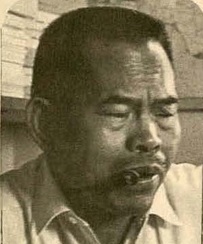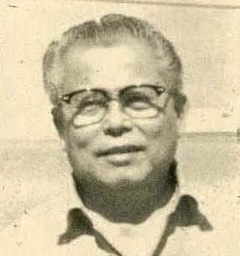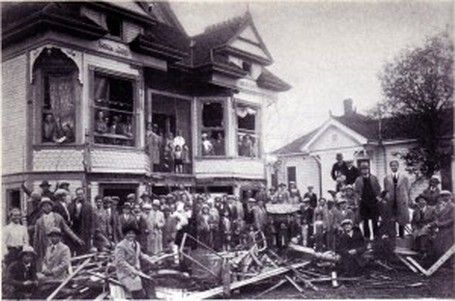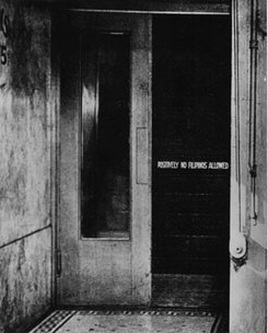Racial Discrimination

"Open racism and discrimination was very bad in the '30s and '40s. Discrimination in employment and housing and violations of Constitutional rights, like not being allowed in certain hotels or to buy homes or being cheated in hours and pay by the growers, and being harassed and beaten by the police and vigilantes, were common situations.
But the worst and most disturbing thing of all is that discrimination and racism are still active. I received many calls in the middle of the night ordering me to stop the strike or something would happen to me or my family."
- Larry Itliong, AWOC Organizer
UFWOC Assistant Director
Source:"Racism: Through Our Eyes" from El Macriado Newsletter (15 May 1970)
But the worst and most disturbing thing of all is that discrimination and racism are still active. I received many calls in the middle of the night ordering me to stop the strike or something would happen to me or my family."
- Larry Itliong, AWOC Organizer
UFWOC Assistant Director
Source:"Racism: Through Our Eyes" from El Macriado Newsletter (15 May 1970)
|
The Manong generation faced racial discrimination. In 1930s, racial violence against Filipinos led to the bombings of the Filipino Federation Building in Stockton, CA and a Filipino boarding house in Imperial Valley, CA.
Source: Filipino American National Historical Society
|
Source: Filipino American National Historical Society
"[The Filipino race was] the most worthless,unscrupulous, shiftless, |

"In 1934, I remember seeing a Delano police push a Filipino brother just because he was standing on the sidewalk, and when he protested they beat him very hard and took him to jail.
The first time I went to the Delano theatre, when I sat down the attendant came and asked me to move to the other section where the Mexicans and Orientals were supposed to sit. I got up and walked out and never came back.
But the thing I remember the most here in Delano was when I was crew boss and one very hot day one of my men collapsed in the field. I took him to the Delano hospital but they wouldn't take care of him because I didn't have $100 cash with me.
I told the nurse to take care of him and I would go get the money. I went to the Westside, to a Filipino who had a store and borrowed the money. I hurried back to the hospital and found the Filipino brother sitting in the same place in the waiting room where I had left. He was dead."
- Nick Yap,UFWOC Member Source:"Racism: Through Our Eyes" from El Macriado Newsletter (15 May 1970)
The first time I went to the Delano theatre, when I sat down the attendant came and asked me to move to the other section where the Mexicans and Orientals were supposed to sit. I got up and walked out and never came back.
But the thing I remember the most here in Delano was when I was crew boss and one very hot day one of my men collapsed in the field. I took him to the Delano hospital but they wouldn't take care of him because I didn't have $100 cash with me.
I told the nurse to take care of him and I would go get the money. I went to the Westside, to a Filipino who had a store and borrowed the money. I hurried back to the hospital and found the Filipino brother sitting in the same place in the waiting room where I had left. He was dead."
- Nick Yap,UFWOC Member Source:"Racism: Through Our Eyes" from El Macriado Newsletter (15 May 1970)

